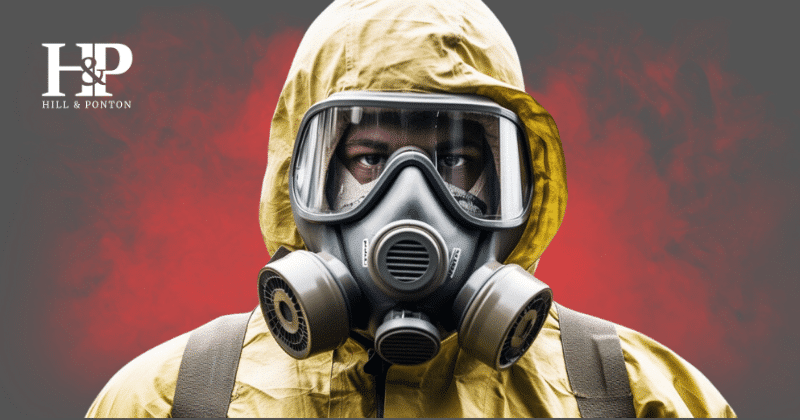Between 1953 and 1987, the U.S. Marine Corps Base Camp Lejeune in Jacksonville, North Carolina, played host to a hidden danger.
Veterans, their cherished families, and civilian workers were unknowingly consuming dangerously contaminated drinking water, a result of oversight at Camp Lejeune. This environmental hazard has left many with lingering health challenges that persist to this day.
Of the multiple health issues that have arisen due to this exposure, esophageal cancer stands out as a particularly alarming consequence.
Esophageal Cancer and Camp Lejeune
Aside from its notable military contributions, Camp Lejeune’s past is marred by the distressing health risks posed by prolonged exposure to its contaminated water.
In-depth research and medical explorations have indicated a concerning association between esophageal cancer and the harmful agents found in Camp Lejeune’s water.
Stressing the gravity of the situation, the VA has underscored the potential risks faced by veterans and others who resided or worked at Camp Lejeune or MCAS New River from August 1953 through December 1987.
They may have consumed this toxic water.
The CDC has identified two specific on-base water sources as the primary instigators of this tragic contamination, revealing the water contained harmful chemicals such as:
- Trichloroethylene (TCE)
- Perchloroethylene (PCE)
- Trans-1
- Dichloroethylene (DCE)
- Benzene
- Vinyl chloride
Subsequent investigations have uncovered even more pollutants, showcasing the dire extent of the water contamination.
By 1985, the scope of this disaster was universally recognized, prompting the cessation of these polluted wells’ usage.
The main source of this extensive contamination was pinpointed to an adjacent dry cleaning business located just outside the base’s borders.
Their careless waste disposal techniques allowed toxic chemicals to infiltrate the base’s water supply, endangering countless veterans and others.
About Esophageal Cancer
Esophageal cancer is a lethal ailment that originates in the esophagus — the tubular passage connecting the throat to the stomach.
This cancer primarily targets the esophagus’ inner lining and can expand outward with progression.
Depending on its origin cells, esophageal cancer varies in type, with esophageal squamous cell carcinoma and esophageal adenocarcinoma being the predominant forms.
Various risk factors, prominently including the ingestion of hazardous chemicals, amplify the likelihood of developing esophageal cancer, making the situation at Camp Lejeune all the more significant for veterans seeking VA benefits for health challenges.
Recognizing the Symptoms of Esophageal Cancer
Prompt recognition of symptoms can significantly improve the chances of early diagnosis and successful treatment.
Common indicators to be aware of include:
- Difficulty swallowing
- Unexplained weight loss
- Chest pain, burning, or discomfort
- Fatigue
- Frequent choking while eating
- Indigestion or heartburn
- Coughing or hoarseness
For those who were at Camp Lejeune during the identified years of contamination, being especially vigilant about these symptoms and seeking immediate medical attention can be instrumental in early detection, thereby potentially improving treatment outcomes and enhancing the quality of life.
Evidence that Camp Lejeune Water Caused Esophageal Cancer
Prolonged exposure to the chemicals mentioned above is linked to all kinds of diseases, including esophageal cancer.
A study was done with the Agency for Toxic Substances and Disease Registry (ATSDR) put together modeling studies that tracked water contamination over time.
Those studies were taken and used to link specific diseases to the levels of water contamination at Camp Lejeune at any given time.
The scientists connected the levels of contamination to diseases linked Esophageal Cancer to the levels of water contamination.
The ASTDR found that the higher levels of chlorinated solvents in the water at Camp Lejeune led to higher rates of Esophageal Cancer among Camp Lejeune residents and veterans.
Am I eligible for VA disability compensation?
You may be eligible for disability compensation payments on a presumptive basis if you meet all of these requirements.
These requirements apply to Veterans, Reservists, and National Guard members.
Both of these descriptions must be true:
- You served at Camp Lejeune or MCAS New River, North Carolina, for at least 30 days total between August 1, 1953, and December 31, 1987, and
- You didn’t receive a dishonorable discharge when you separated from the military
And you must have a diagnosis of 1 or more of these presumptive conditions:
- Adult leukemia
- Aplastic anemia and other myelodysplastic syndromes
- Bladder cancer
- Kidney cancer
- Liver cancer
- Multiple myeloma
- Non-Hodgkin’s lymphoma
- Parkinson’s disease
Evidence shows a link between these conditions and exposure to chemicals found in the drinking water at Camp Lejeune and MCAS New River during this time.
If you resided at Camp Lejeune or MCAS New River, North Carolina, you also may be able to participate in the class-action lawsuit under the Camp Lejeune Justice Act of 2022.
Can I also get health care benefits?
Yes. If you meet the service requirements for Camp Lejeune, you may be eligible to enroll in VA health care.
If you have any of the 15 covered health conditions listed here, you won’t have to pay a copay for care for that condition.
Here are the 15 covered conditions related to Camp Lejeune:
- Bladder cancer
- Breast cancer
- Esophageal cancer
- Female infertility
- Hepatic steatosis
- Kidney cancer
- Leukemia
- Lung cancer
- Miscarriage
- Multiple myeloma
- Myelodysplastic syndromes
- Neurobehavioral effects
- Non-Hodgkin’s lymphoma
- Renal toxicity
- Scleroderma
Note: If you also get VA health care for other conditions that aren’t on this list, you may need to pay a copay for that care.
How Hill & Ponton is Committed to Supporting Affected Veterans
The tragic legacy of Camp Lejeune’s water contamination continues to impact countless lives.
However, with the right legal support, affected individuals can seek and secure the benefits they rightly deserve.
At Hill & Ponton, our primary mission is to advocate for veterans’ rights.
We specialize in VA disability benefits, striving tirelessly to navigate the intricate legal processes on behalf of those who served.
If you or a loved one have been affected by the Camp Lejeune water contamination, our team is here to guide you every step of the way.
Reach Out Today: You’ve served our country; now let us serve you.
Call Hill & Ponton at 1-888-477-2363 for professional assistance.
If you’ve been denied VA benefits and need help filing a claim, we’re here to support you.
Don’t delay—contact us and secure the compensation you deserve.
Click the button below to begin your free case evaluation.





